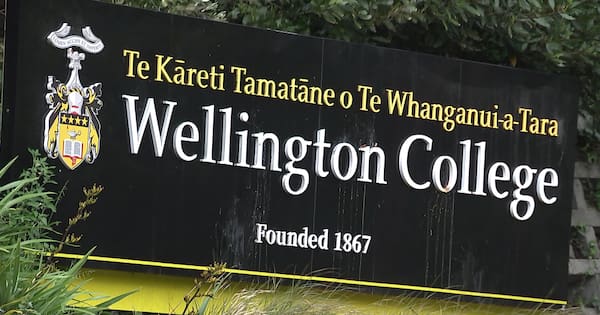
Hundreds of students and several staff at two of Wellington’s largest high schools have been asked to stay home after two confirmed measles cases linked to a rising number of cases nationwide.
A student who attended Wellington College from October 13 to 15 while infectious prompted the school to instruct all Year 11 students and more than 20 staff to isolate.
The student also travelled on the school bus 736 during that time.
Meanwhile, a relative of the student, also infected, attended Wellington Girls’ College for half a day on October 13, exposing about 60 students and four staff.
The cases were part of a wider increase that had now reached 10 confirmed infections nationwide, according to Health NZ. One case was linked to overseas travel, while the remaining nine were locally acquired.
Seven of those were connected to a high-risk exposure event on the Bluebridge Ferry on October 3, and Health NZ said the risk of further cases and exposures remained “very high”.
“This weekend we have also identified several hundred close contacts at Wellington College, and a number also at Wellington Girls’ College, following cases linked to the 3 October ferry crossing,” Health NZ said in a statement.
“With the schools’ support, we have sent communications out to inform and support staff, students and the wider school communities. Public Health is working at pace to contact all identified individuals. Due to the volume of people involved, this process may not be completed today. Individuals are asked to follow the instructions provided and await direct contact.”
The cases at two of the capital’s largest high schools were confirmed over the long weekend. (Source: 1News)
Health NZ said it is using bulk text messages, emails and phone calls throughout the response to reach people and urged anyone contacted to follow the advice to help “stamp out” the outbreak.
In a letter obtained by 1News, the National Public Health Service said it would be contacting all Year 11 students and specific Year 11 staff considered close contacts.
“We are advising all Year 11 students and specific Year 11 staff to please stay home and wait for the public health team to make contact with you.”
Families of Year 11 students had been asked to locate immunisation records or evidence of measles infection.
Measles is highly contagious and can cause serious and potentially long-term health problems.
People are often infectious before symptoms appear, which typically include a high fever (over 38C), cough, runny nose, sore red eyes (conjunctivitis), and a rash that begins on the face and spreads down the body.
Health officials have previously warned New Zealand was at high risk of a measles outbreak, with immunisation described as the best protection.
Locations of interest have been identified throughout Auckland, Taranaki, Nelson-Marlborough and Tasman, and Manawatū-Whanganui.














